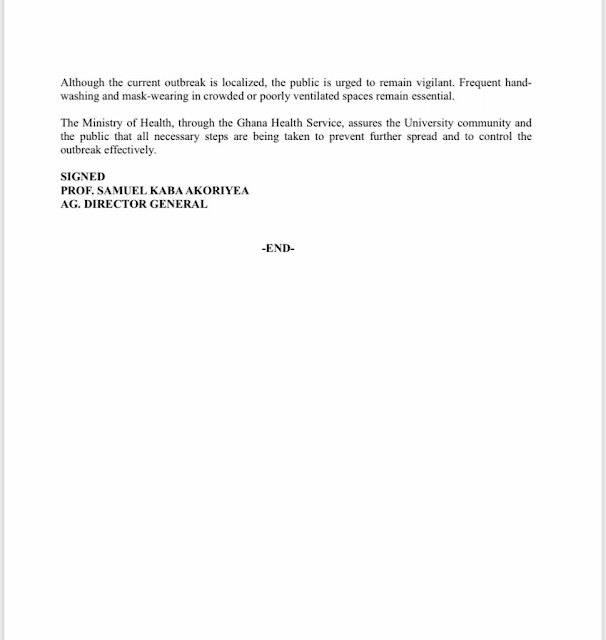The Ghana Health Service (GHS) has recently issued an urgent public health advisory in response to a notable rise in COVID-19 cases reported within the University of Ghana community. This announcement comes even as the World Health Organization (WHO) has officially lifted its classification of COVID-19 as a Public Health Emergency of International Concern, indicating a significant shift in the global understanding of the virus.
In a statement released on Thursday, June 26, the GHS noted that Ghana had experienced a sustained decline in COVID-19 cases for over a year. This decline, however, is now being challenged by a localized outbreak at the University of Ghana, where health officials have detected an uptick in infections among students and staff. Fortunately, officials have emphasized that all reported cases to date have been mild, with no individuals requiring hospital treatment.
Health authorities are currently collaborating closely with university officials to monitor the situation actively. They intend to reassess public health measures as necessary to ensure the safety of the university community while containing the spread of the virus. The GHS has stressed that while the outbreak remains confined to a specific area, it serves as a poignant reminder that the fight against COVID-19 is far from over.
Furthermore, the public is being urged to stay vigilant, as further sporadic outbreaks are anticipated globally, likely following seasonal trends similar to those seen in previous years. This warning underscores the importance of maintaining awareness and readiness as the pandemic continues to evolve.
In its advisory, the GHS reiterated the necessity of adhering to fundamental COVID-19 preventive measures to curb transmission effectively. These measures include:
-
Maintaining a safe distance from others,
-
Wearing face masks, especially in crowded or poorly ventilated environments,
-
Practicing frequent handwashing with soap and water, or using hand sanitizer,
-
Self-isolating at home when feeling unwell,
-
Avoiding large gatherings, and
-
Seeking prompt medical attention if symptoms develop.
Common symptoms that individuals should watch for include fever or chills, cough, sore throat, general fatigue, shortness of breath, and alterations in taste or smell.
In a reassuring message to the public, the Ministry of Health, through the GHS, has committed to implementing all necessary interventions aimed at containing this outbreak and preventing its spread further. Health officials have expressed their confidence in the continued cooperation and responsible actions of the university community and the wider public, especially in environments that could facilitate virus transmission.
You May Also Like
President mahama advocates new petroleum levy as "Difficult but necessary" measure
Upper east region: 21 pregnant candidates and 17 nursing mothers to write the 2025 bece
Private hospitals struggle as grnma strike leads to patient overflow
As Ghana navigates this latest challenge in the battle against COVID-19, the proactive stance of health authorities highlights the importance of collective responsibility and the need for ongoing public health vigilance. The recent developments serve not only as a notification of emerging risks but also as a call to action for everyone to maintain their guard in the face of an ever-evolving health landscape.







Post a Comment